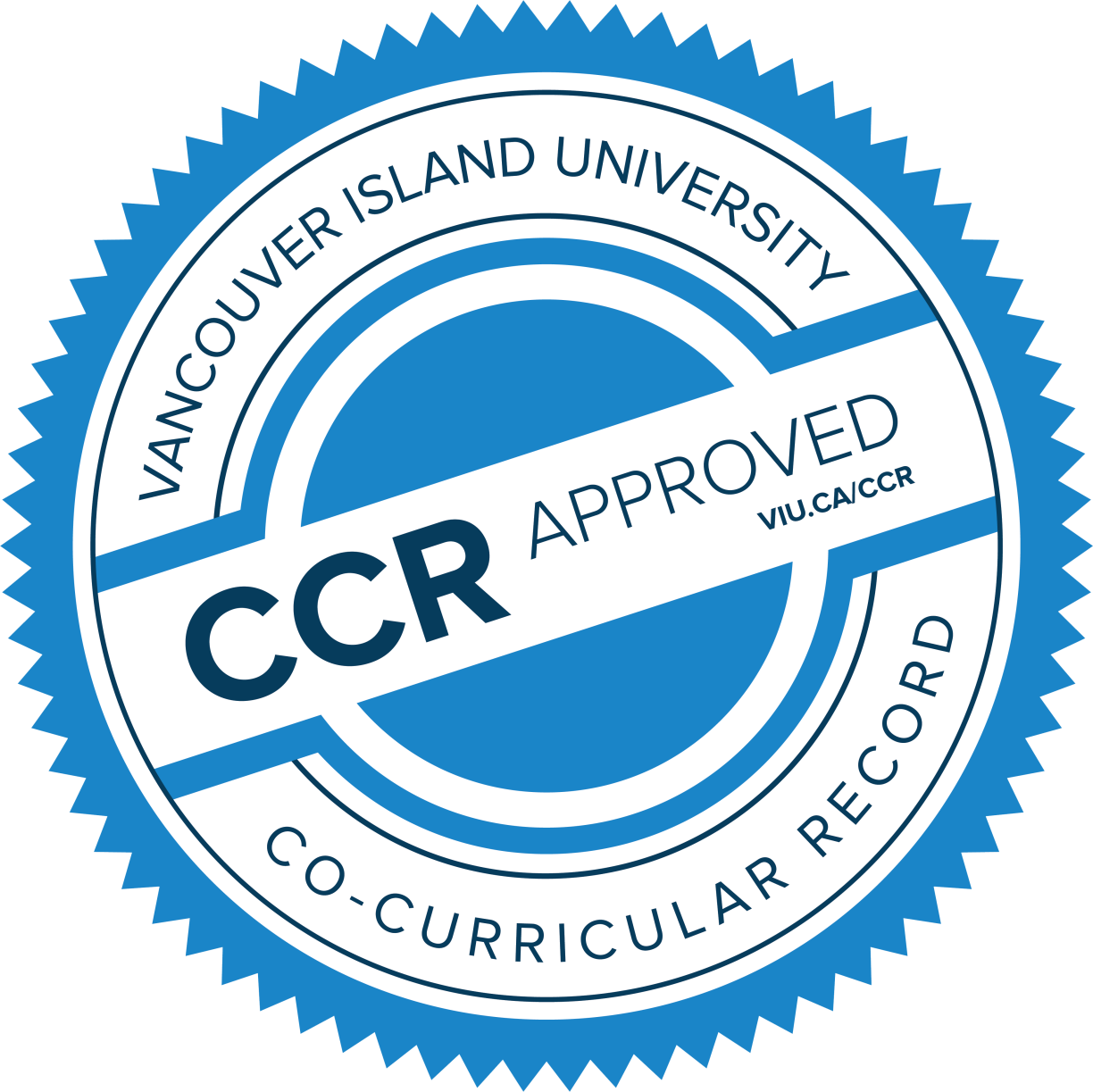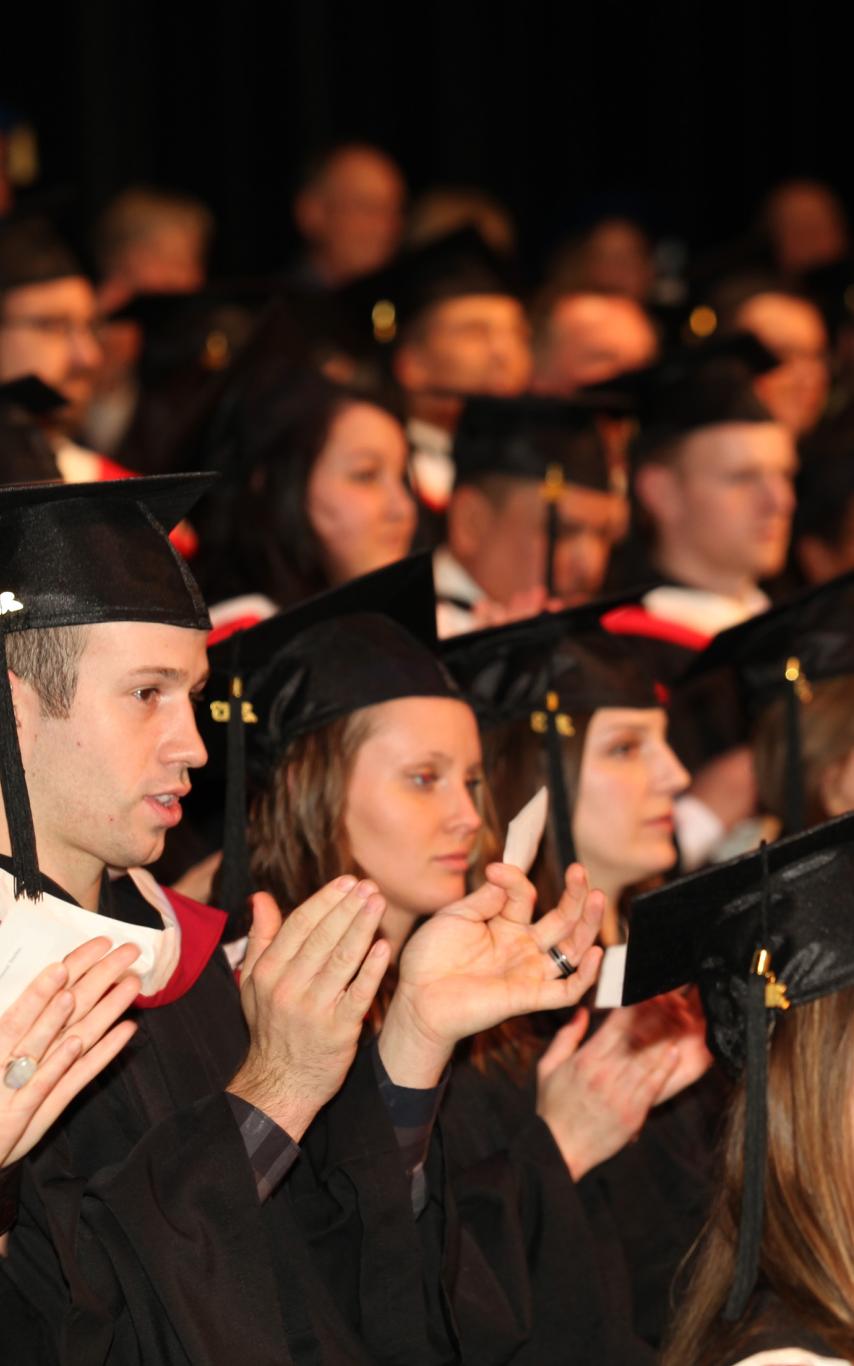What are Graduate Attributes?
The Graduate Attributes are a collection of traits, characteristics and relevant skills. The purpose of the Graduate Attributes is to develop students’ employable skills and important competencies that transform students into professionals. VIU’s Graduate Attributes fall under three pillars: Literacies, Intellectual and Practical Skills, and Civic Engagement.
Literacies
Oral Communication
Oral communication is the use of speech to express perspectives, knowledge, thoughts, ideas, and information in a clear and effective manner. It includes the capacity to listen and to comprehend orally‐communicated information.
Reading
Reading engages, situates, and analyzes a text in order to comprehend and make meaning. Readers learn to understand how texts are culturally and historically situated, to interpret using a range of genres, and to appreciate that there are different ways to approach a text.
Scientific Literacy
Scientific literacy entails an understanding of the scientific method, including the roles of experimentation, numeracy, and reproducibility, sufficient to make evidence‐based conclusions and to participate in informed civic debate.
Literacies
Technological Literacy
Technological literacy includes an understanding of how technical innovation has influenced societies. Technological literacy involves an openness to new technologies and processes, as well as the ability to critically evaluate their relevance and uses.
Written Communication
Written communication is the use of writing to organize perspectives, knowledge, thoughts, ideas, and information and to present them in a clear and effective manner. Adept writers are able to negotiate different genres and situations.
Information Literacies
Information literacies include the ability to find and critically evaluate relevant information and its sources, and to synthesize the information with existing knowledge
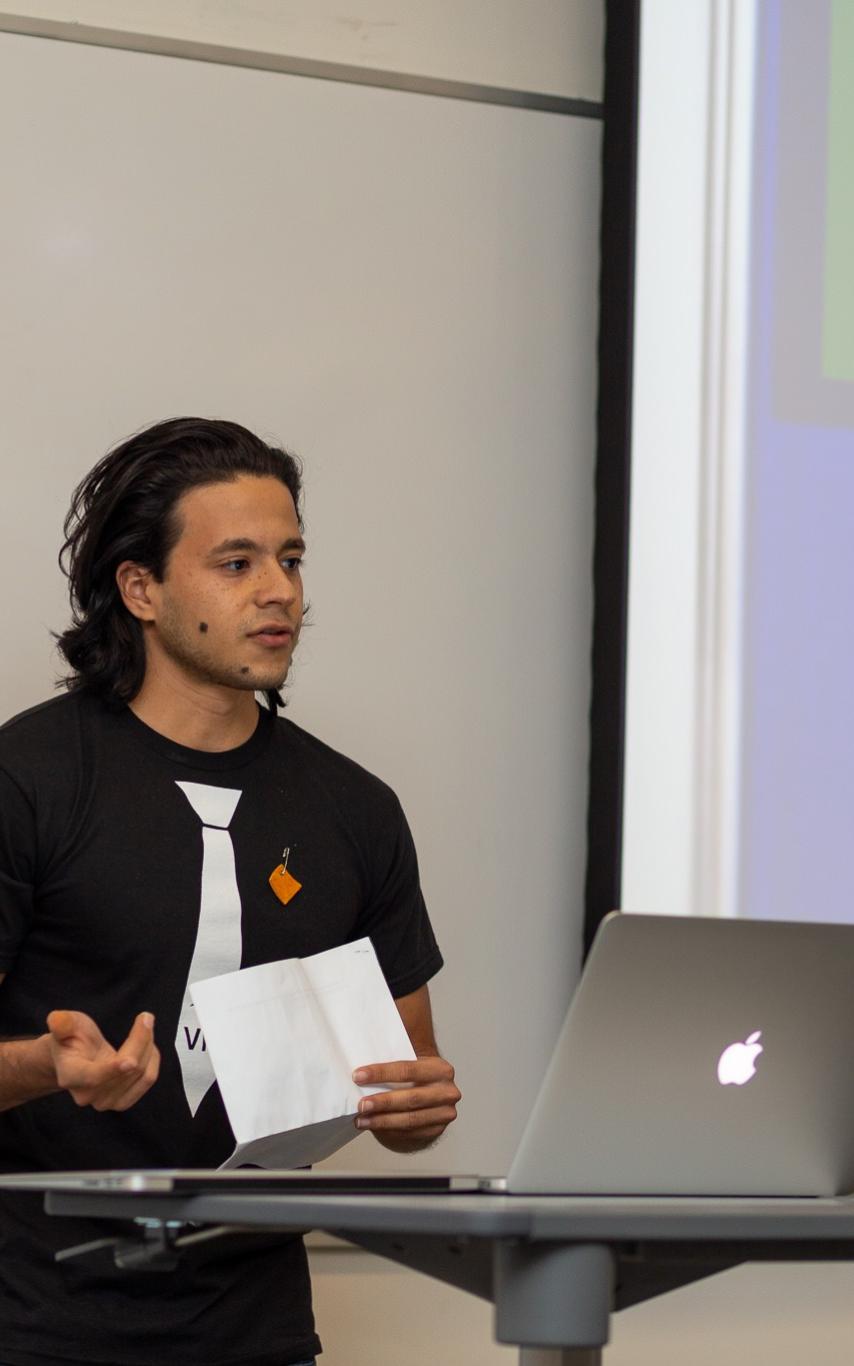
Student success and learning through experience.
Intellectual & Practical Skills
Active Learning
Active or deep learning occurs when individuals are able to understand how they learn and how to use appropriate learning strategies given the situation, including planning and re‐evaluating their approach.
Collaboration
Collaboration is the ability to work productively with others, especially within the context of an organization. Effective collaborators understand the processes by which organizations achieve their goals and apply skills and resources to achieve shared objectives.
Creative Thinking
Creative thinking occurs when established approaches are re-imagined in order to arrive at a new way to represent or understand a subject. Creative thinking is characterized by a solid grasp of established practices within a field of study, by use of imagination and synthesis, and through initiative and risk‐taking.
Intellectual & Practical Skills
Historical Understanding
Historical understanding is the capacity to see how texts, ideas, and events are informed by the past and situated in their own contexts. The ability to trace change or continuity over time extends to the historical basis of disciplines and knowledge, including how these relate to other social and cultural developments.
Inquiry and Ways of Knowing
Inquiry is the process of posing questions while trying methodically to answer those questions. Questions arise in relation to past inquiry within a field of study, emerging issues, and individual curiosity. Ways of knowing can be historical, cultural, and disciplinary.
Safe and Ethical Practices
Students will become aware of, and adhere to, safe and ethical practices in their areas of study or profession. Such practices could relate to work in a lab, a shop, or a classroom, and includes adherence to ethical standards in research involving human participants and ensuring that the safety, health, welfare, and rights of participants are adequately protected.
Intellectual & Practical Skills
Critical Thinking
Critical thinking is the ongoing practice of examining, analyzing, and reflecting on something before developing a position or conclusion.
Disciplinary Expertise
Students achieve domain‐specific knowledge and competence in their chosen areas of study.
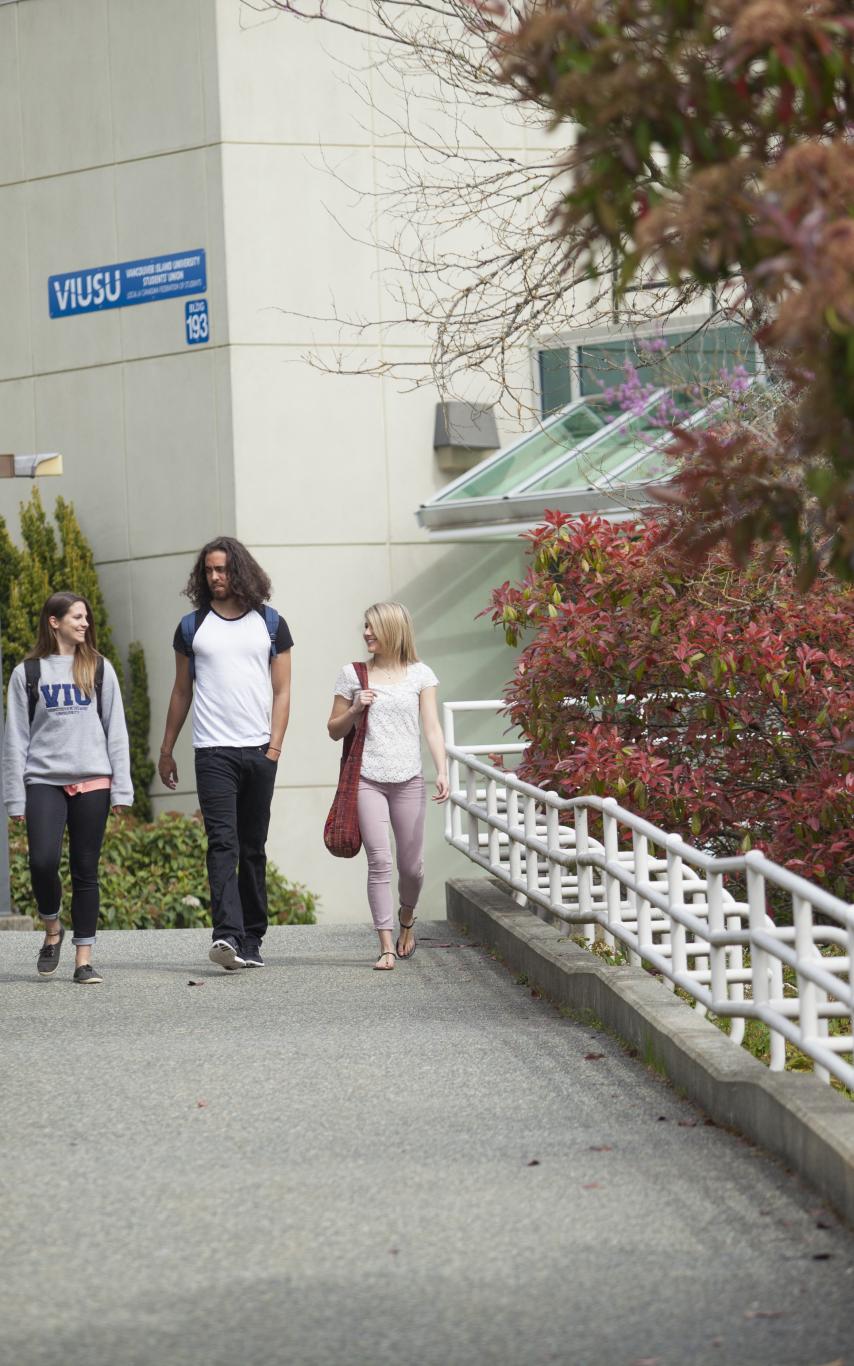
Build your story. Share your experience.
Civic Engagement
Capacity to Engage in Respectful Relationships
Respectful relationships involve trust, acceptance, inclusion, and emotional intelligence. Graduates of VIU have the capacity to develop meaningful relationships and demonstrate respectful and genuine interest in all people, particularly when interacting with others who have different abilities or backgrounds.
Foundations for Lifelong Learning
Lifelong learners are self‐motivated learners. They have the knowledge, skills, and attitude to engage in continuous learning; they are characterized by independence of thought, curiosity, and initiative. Lifelong learning is important for personal and professional development as well as for civic engagement.
Indigenous Perspective
An awareness of Aboriginal perspectives includes the different ways of knowing by which these perspectives enrich university life. Indigenous Perspective relates not only to the objective of exploring what Indigenous knowledge is but also to devising ways of integrating such knowledge into our learning.
Civic Engagement
Integrative Learning
Integrative learning is the ability to make connections, synthesize and apply learning in new situations, and bridge theory and practice across disciplinary boundaries.
Intercultural Perspective
Intercultural perspectives comprise awareness and appreciation of different ways of knowing and being which encompass diverse peoples, cultures, and lifestyles.
Ethical Reasoning
Ethical reasoning is the application of a moral framework to a given situation or issue.
Civic Engagement
Local Knowledge in a Global Context
A world view informed by geography, sustainability, culture, history, and current events is an important facet of citizenship in an era of mass culture and communication.
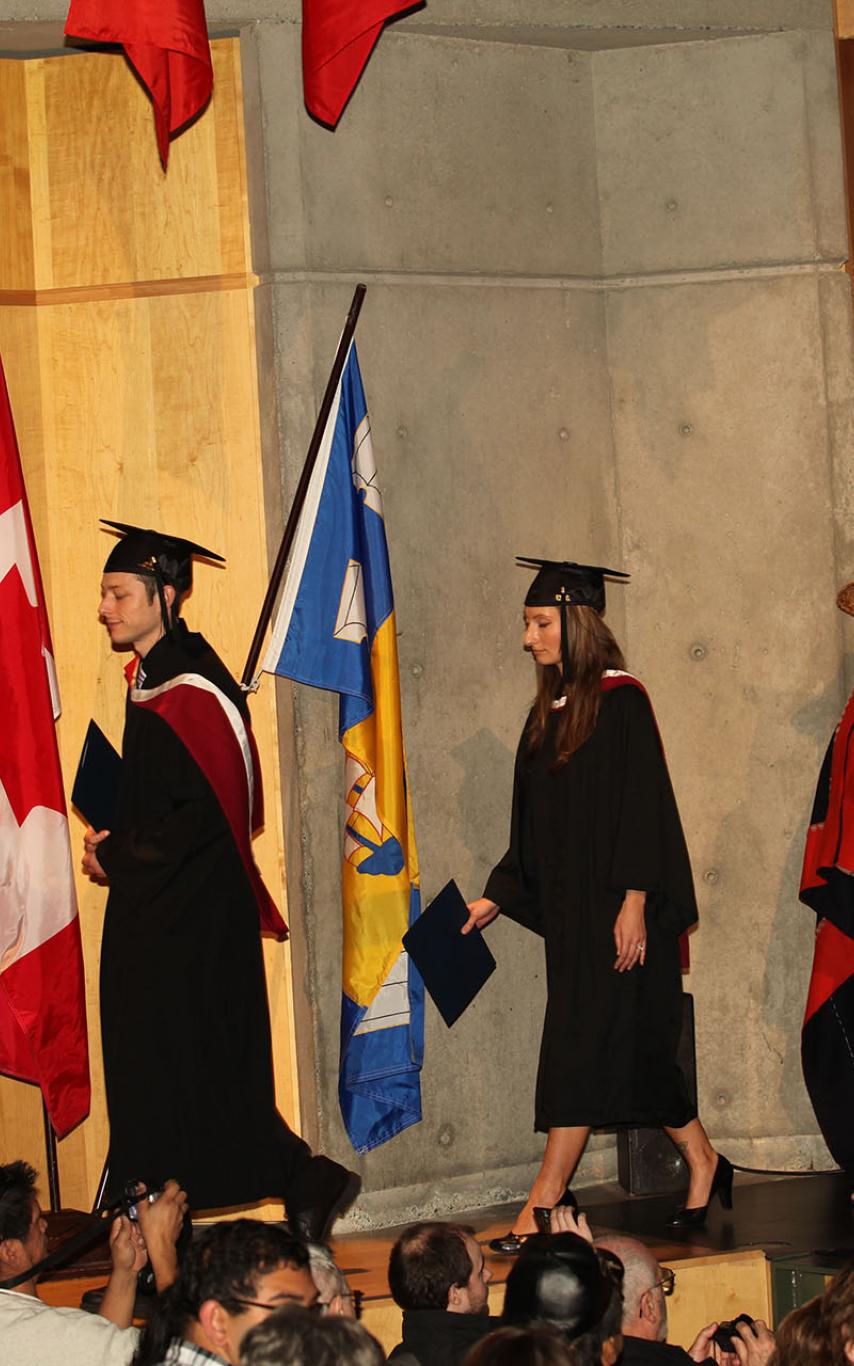
Transform into a professional.
